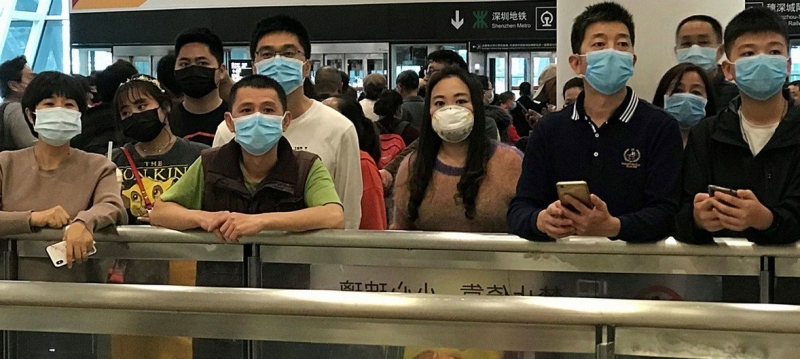
Wear masks in crowded or poorly ventilated areas to prevent the spread of infection. Pictured: Shenzhen Airport (archive) Metapneumovirus: What you need to know about the spread of infections in China Health
News are coming out of China about the spread of respiratory infections, including human metapneumovirus (HMPV). However, as the head of the European Bureau of the World Health Organization (WHO) Hans Kluge reported, the scale and intensity of the disease, according to local authorities, remains below the level of last year.
WHO’s China office and headquarters receive regular updates on the situation and provide support in monitoring pathogens and tracking changes in virus strains and variants, he said.
WHO’s European Regional Office, in turn, shares the information it receives with Member States, Kluge said, stressing the importance of transparent and prompt public health communication. In addition to preparing for emergencies, getting information from reliable sources is important to counter misinformation and disinformation, he added.
“Ultimately, the best way to prepare for and prevent any public health risk is to invest in strong health systems and services, including collaborative monitoring,” the WHO Europe chief stressed.
What is human metapneumovirus (HMPV)?
Kluge added that HMPV is a fairly common respiratory virus that usually causes mild symptoms such as cough, fever, nasal congestion and wheezing. However, in severe cases, the infection can lead to pneumonia, especially in infants, older adults or those with chronic medical conditions.
The virus is transmitted through the air, close contact or contaminated surfaces. There is currently no specific antiviral therapy to treat HMPV, nor a vaccine to prevent it.
Kluge emphasized that simple measures that apply to a wide range of respiratory illnesses, including colds, flu, COVID-19, and metapneumovirus, can prevent the spread of infections and reduce the risks:
- Stay home if you are sick and wear a mask in crowded or poorly ventilated areas;
- Cover your cough or sneeze with a tissue or flexed elbow;
- Wash your hands regularly and clean surfaces.
